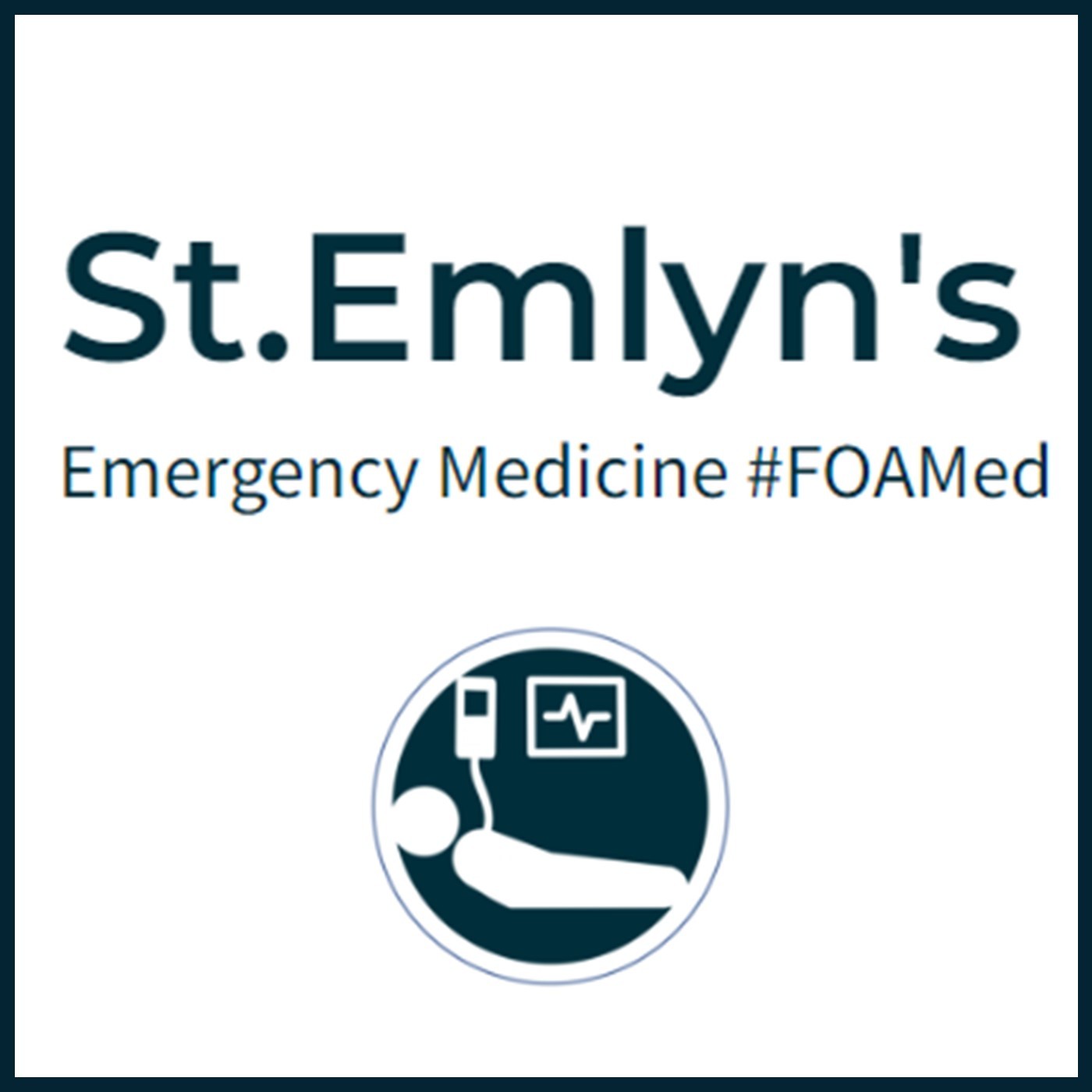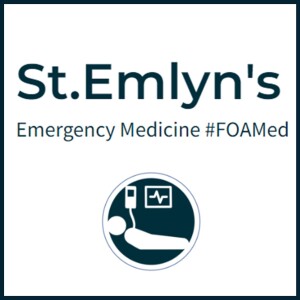
1.3M
Downloads
273
Episodes
A UK based Emergency Medicine podcast for anyone who works in emergency care. The St Emlyn ’s team are all passionate educators and clinicians who strive to bring you the best evidence based education. Our four pillars of learning are evidence-based medicine, clinical excellence, personal development and the philosophical overview of emergency care. We have a strong academic faculty and reputation for high quality education presented through multimedia platforms and articles. St Emlyn’s is a name given to a fictionalised emergency care system. This online clinical space is designed to allow clinical care to be discussed without compromising the safety or confidentiality of patients or clinicians.
Episodes

Wednesday Oct 12, 2016
Ep 81 - Difficult Conversations with Children in Critical Care with Liz Crowe
Wednesday Oct 12, 2016
Wednesday Oct 12, 2016
Helping Children Understand Tragedy: Guidance for Parents and Professionals
In a recent St Emlyn's podcast, Iain Beardsell and Liz Crowe, an advanced social worker in a pediatric intensive care unit in Brisbane, explored the critical topic of how to communicate with children during tragic situations. The discussion emphasized the importance of honesty and directness when dealing with topics like illness, death, and other forms of hardship.
Understanding the Context
Historically, children in many cultures were more regularly exposed to the realities of life, such as birth and death. In contrast, modern Western societies often shield children from these experiences. However, Liz asserts that children are more perceptive and resilient than we give them credit for, and attempts to protect them from all emotional pain can be detrimental. Shielding children from the truth can lead to confusion and increased anxiety, as they often sense when something is wrong, even if it is not explicitly communicated to them.
The Importance of Honesty
When difficult situations arise, such as a family member being diagnosed with a serious illness or being involved in an accident, adults may feel the instinct to protect children by withholding information. However, research and experience show that children cope better when they are informed and involved. Children, especially those under ten, can mistakenly believe they are responsible for negative events due to their egocentric worldview. Therefore, it is crucial to communicate clearly and truthfully, helping them understand the situation without assigning blame to themselves.
Balancing Protection and Reality
Parents naturally want to protect their children from pain. However, overprotection can prevent children from learning to deal with disappointment and hardship, essential components of developing resilience. Liz argues that by being overly protective, we may contribute to rising rates of depression and mental health issues among young people. It's essential to prepare children for life's challenges by allowing them to experience and understand difficult emotions in a supportive environment.
Practical Approaches to Communication
When faced with the need to communicate difficult news to children, it's important to empower familiar adults—such as parents or guardians—to have these conversations rather than leaving them to strangers. Here’s a suggested approach:
- Preparation: Prepare the adults involved in the child's life by discussing the importance of honest communication and the possible impacts of the conversation.
- Setting Expectations: Describe what the child might see, hear, and feel to reduce anxiety and set clear expectations.
- Use Specific Language: Avoid euphemisms. Use specific medical terms like "neuroblastoma" or "head injury" to describe the situation accurately.
- Timing and Environment: Choose an appropriate time and setting for the conversation, avoiding moments when the child might be tired or distracted.
- Stick to the Facts: Provide clear, factual information without overwhelming the child. Keep explanations straightforward and allow time for processing.
- Encourage Questions: Allow the child to ask questions and answer them honestly. It’s okay to admit if you don’t have all the answers.
- Ongoing Support: Be available for follow-up conversations, as children may revisit these topics as they process the information.
Using Accurate Language
It’s crucial to use accurate language when discussing severe issues. Avoid using vague terms like "poorly," which can lead to misunderstandings. For example, describing a child as "very sick" without specifying the illness can cause confusion and fear, especially if the child later associates the term with less severe conditions. Using specific medical terminology helps children differentiate between different types of illnesses and their severity.
Long-Term Impact on Children
Many parents and caregivers worry that exposure to tragedy will permanently damage their children. While such experiences can indeed be life-changing, they do not necessarily result in negative outcomes. Children who experience the death of a sibling or parent may grieve and feel pain, but they can also develop greater empathy and understanding of life's complexities. Research indicates that while children in these situations may have higher levels of anxiety, they are not necessarily less successful academically or socially. They often develop a deeper sensitivity and a better understanding of life.
The Role of Counseling and Support
While counseling can be helpful, Liz cautions against making it the default response. Instead, she suggests that families should be encouraged to navigate these challenges on their own, seeking professional help only if they find themselves unable to cope. This approach fosters resilience and self-reliance, teaching children that while therapy is a valuable resource, it's not always necessary.
Conclusion: Building Resilience
Ultimately, difficult conversations with children about tragedy are a necessary part of life. By approaching these conversations with honesty, clarity, and support, we can help children navigate their emotions and develop the resilience needed for future challenges. Whether as parents or healthcare professionals, our role is to guide children through these experiences, providing the tools and understanding they need to grow and thrive.
At St Emlyn's, we believe that while we can't shield children from all of life's difficulties, we can help them face these challenges with courage. The experiences that children go through, even the painful ones, can serve as opportunities for growth and learning. With the right support, children can emerge from these experiences stronger and better equipped to handle life's complexities. Our goal is to create a safe space for children to express their feelings, ask questions, and ultimately, develop the resilience they need to navigate the ups and downs of life

No comments yet. Be the first to say something!